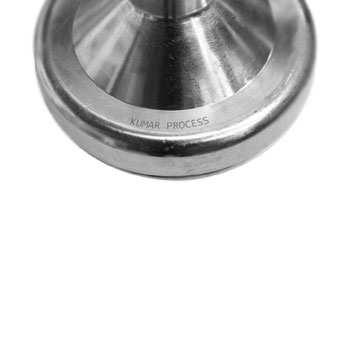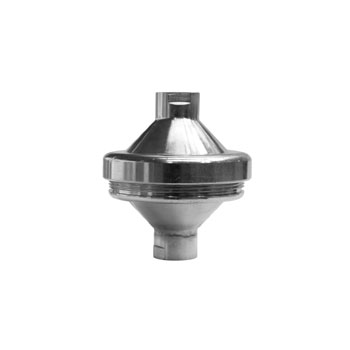Inline Filters or Conical Filters
Inline filtration systems are available in conical shape often called conical filters or cone filters. They are typically made from glass and are designed specifically for integrating seamlessly into pipelines or fluid flow systems. Cone filter elements are used for filtering of gases or fluids in direct line connections. There is no specific need for filter housing.
Due to an elegant conical design, this filter offers superior performance and efficiency compared to traditional models. Its advanced filtration technology ensures optimal removal of contaminants, providing clean and purified fluids for various applications.
These inline filters are ideally suited for industrial filtration of water & corrosive chemicals / acids which are compatible with PP filters.


